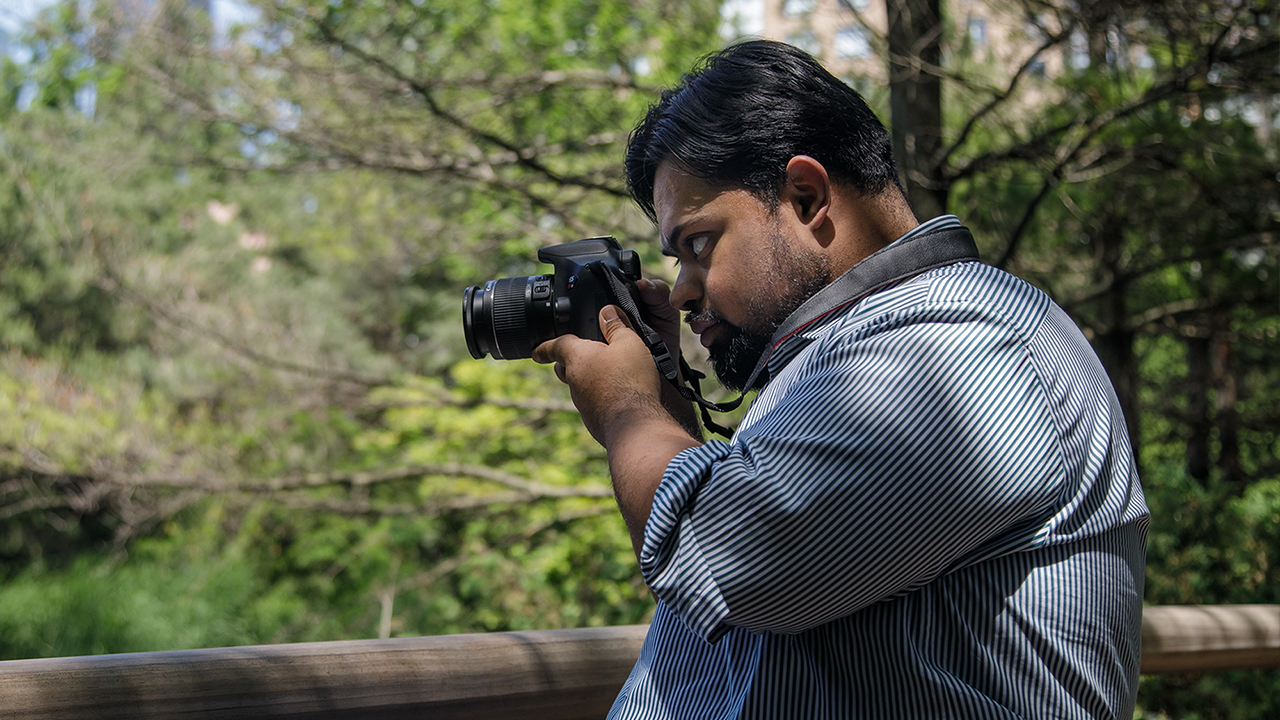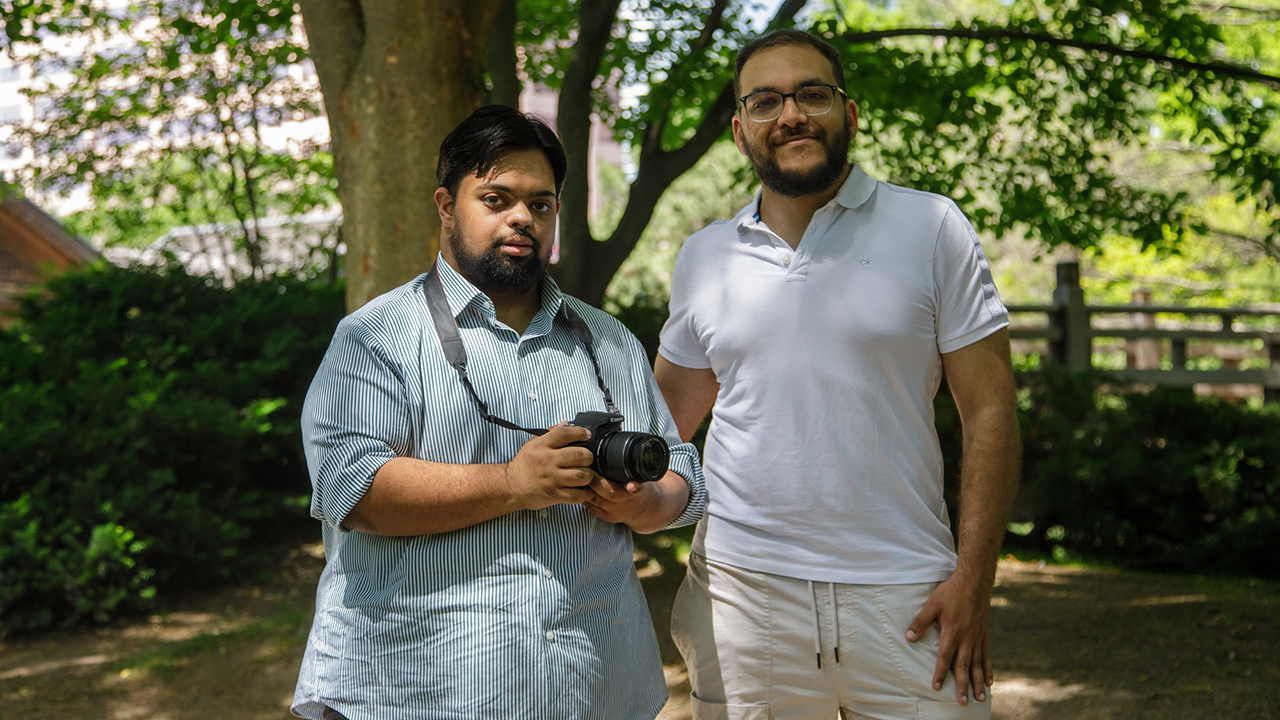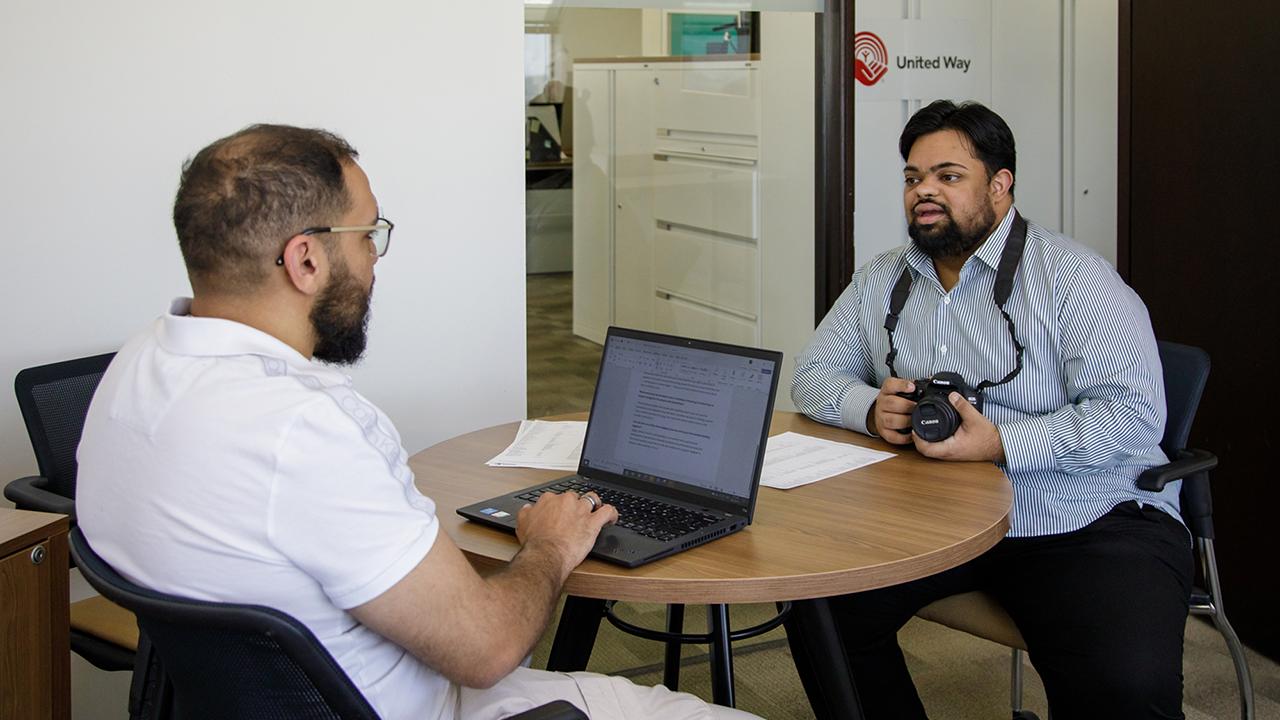United Way is breaking down barriers to employment for people with disabilities. Any way we can.
When Zafeer is out photographing a cityscape or chatting with customers at local markets where he sells his prints, it’s hard to imagine he ever struggled to find a job. But he did.
Zafeer has Down syndrome, and despite his drive — and the support of his family — he couldn’t catch a break. Doors kept closing before they were fully open.
Across the GTA, far too many people with disabilities face the same roadblocks Zafeer did. Discrimination in hiring. Inaccessible workplaces. Communication barriers that shut people out. A lack of real opportunities to build a stable life. At United Way Greater Toronto, we’re determined to change that. We’re rolling up our sleeves, investing in over 30 programs that provide supports for people with disabilities — providing real opportunities to thrive through job training, community connections, mentorships and more.
For Zafeer, change started with a conversation. He was chatting with a friend when the topic of work came up. His friend had taken part in an employment program for young people with disabilities. He told Zafeer about the support he received and encouraged him to check it out.
That led Zafeer to SMILE Canada’s Open Shop, a United Way-supported program that helps racialized youth with disabilities turn their passions into small businesses. The program is hands-on, practical and deeply personalized to provide what each person needs to grow their business through funding, mentorship and unwavering support.
The right support can open new doors

From the beginning, Zafeer felt a spark. He connected with Mohammad, the program coordinator, and together they explored his interests. Zafeer had a camera at home — and a love of technology and gadgets — but no formal training. So, they decided to dive in. A professional photographer from the program began working with Zafeer, helping him explore his camera’s settings, learn lighting and build confidence behind the lens.
“I wanted to start my own business, because I love photography,” says Zafeer. “I like to capture beautiful moments in a different light.”
From there, they turned his natural talent into a business. He developed his photographs into prints and postcards, selling them at local markets. He worked with a graphic designer to develop a brand identity: Zafeer’s Photography — clean, polished and proudly his own.
“I was mentored every step of the way,” says Zafeer. “They really helped me to set up my business.”
Now, Zafeer is building a name for himself. He takes photos and video at events — including many for SMILE Canada — and he and Mohammad are working together to pitch his services more widely.
“Programs like this one challenge the idea that disability and racial identity limit a person’s potential,” says Mohammad. “When we create space for racialized youth with disabilities to build their own ventures, we’re not just fostering independence — we’re challenging stereotypes, creating role models and building pride in the community. This kind of support doesn’t just empower individuals; it helps in reshaping systems to value diversity as a driver of innovation.”
What started as a camera sitting on a shelf has become a tool for Zafeer to express himself, connect with others and earn an income doing what he loves.
“The people at Open Shop are amazing. They really support me,” says Zafeer.
Creating space to thrive

The barriers people with disabilities face can be physical, social or systemic. And for many, those challenges are compounded by other forms of discrimination. Women, Indigenous, Black, racialized and 2SLGBTQIA+ people with disabilities often face greater inequities, which make it harder to access opportunities, resources and support.
That’s why equity is at the centre of our work. Through our recent three-year Community Program Grants, 27% of the programs we’ve invested in are led by or focused on Indigenous, Black and other structurally disadvantaged communities — ensuring the work is both community-led and community-driven.
“Even though these are systemic gaps, people too often assume that the intersectional barriers racialized youth with disabilities face define what they’re capable of,” says Mohammad. “But when you give these young people the tools to pursue what they love — and the space to dream bigger — they prove those limitations were never about them in the first place.”
That’s also why United Way supports agencies like SMILE Canada that serve racialized youth with disabilities. We’re determined to ensure all people with disabilities have opportunities to participate in community — whether that’s through meaningful work, building community ties, contributing to local initiatives or volunteering on community projects. Because belonging comes in many forms — and everyone deserves a chance to find their place.
A future full of possibility

Zafeer’s journey is just getting started. He’s working to expand his business, grow his portfolio and sharpen his skills.
“This program made me more confident. It helped me see my skills and talent, what to improve on,” says Zafeer. “And I also made good friends, so it has helped me with my social skills as well.”
Zafeer’s business is about more than photography. It’s about independence, belonging and proving to himself — and the world — that his perspective, creativity and presence matter.
“I don’t know if I would have started my business without this program,” says Zafeer. “It made it possible to do something I care about.”
At United Way, we’re investing in programs that build pathways to employment, connection and community for people with disabilities — while also digging in deeper than ever to push for lasting change and to tear down barriers to opportunity through advocacy and research. We’ll do whatever it takes so that everyone has what they need to build a life of dignity and possibility. Any way we can.
“There’s this assumption that people with disabilities can’t carve out space for themselves in the industries they care about,” says Mohammad. “But when we invest in helping a person with a disability do what they love, that investment always makes it back to the broader community.”
For Zafeer, that means turning his passion into a thriving small business. It means the joy of seeing his photos in people’s homes, the pride of calling himself an entrepreneur and the hope of a future filled with even more opportunities to capture moments of beauty, one photograph at a time.